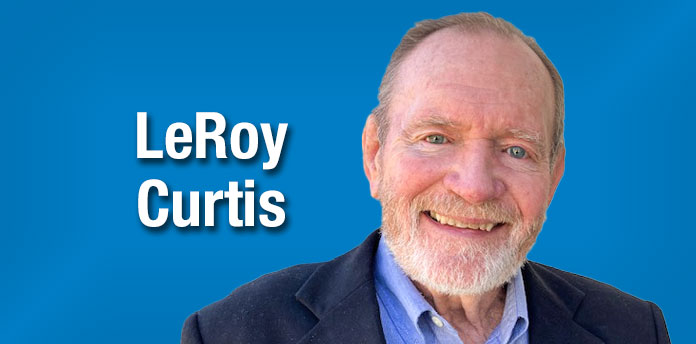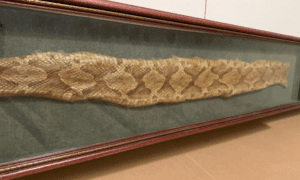Dear friends, let me recount part of a newsletter I wrote back in the early ’90s when Judy and I were serving in the mission field in Kenya. It was entitled “My Friend, “Smiley.”
You drive down the pothole-ridden road to Kitale town, make your turn up to the post office, and there they are, converging on your car like ants on dropped food at a picnic.
Where do they all come from? God only knows, but they’re there. They’re always there, sometimes only a handful, more often a small mob. But they’ll be there… waiting… waiting for you.
I’m talking about the street boys and girls. Some are orphans, others are merely children neglected because parents have neither the money nor the energy to care for them.
Most of them are of the Turkana tribe from the remote desert to the north of Kitale. For the past few years they have been plagued with drought, and most of their animals have died. Without animals such as goats, cattle, or camels, the desert people have nothing. They cannot survive unless they wait by the side of the road for relief trucks to arrive with enough maize meal for another few days of existence.
Many of them wander down to Kitale, the nearest sizeable town, hoping to scratch out some sort of living. But there is very little work here, and they have no animals to herd.
There are, however, some missionaries like Judy and me who love the Lord and are still too embarrassed by our relative prosperity to refuse them help. It breaks our hearts to see small children living lives of deep desperation and we wonder if anybody, except Jesus, even notices them.
So, there they are, all over your car with their filthy faces, running noses, open sores and sad eyes. “Njaa, njaa,” they chant in unison as if they had rehearsed their cry for help. The word means “hungry,” and they usually are judging by the rate they can down the bread or fruit we often buy for them.
They all appear to be dressed in the same uniform, a tattered earth brown shirt with pants to match. Upon closer examination one realizes that the uniformity is solely the result of the filth in which they live.
Their eyes dart about the interior of your car, hoping to spot something for which to beg, or perhaps snatch when you’re not looking. Those eyes communicate a sense of desperation that is totally foreign to us. We don’t… we can’t understand, but we cannot ignore those eyes. They’re human; they are children’s eyes.
Judy and I try to help when we can, but one of the sad facts of life on the mission field is that you cannot help everyone who has a need. We so often feel like a small boat of supply in a sea of urgent needs. If we are not careful, we will be quickly swamped, financially as well as emotionally.
Many missions end because of “mission creep” when immediate needs distract missionaries from their primary objectives. The challenge before us is to stay focused on what God has sent us here to do.
But it’s difficult, especially when you begin to develop a relationship with some of the children. Take “Smiley,” for instance. I don’t know his tribal name. He’s told me a few times, but one has to be a Turkana or a linguistic contortionist to pronounce it, so we just call him “Smiley,” though he seems to get a kick out of feeble attempts at it. He thinks he is about six years old, but the hardships of life have made him much older in terms of “street smart.” He is quite the character.
The only two teeth he has are the two front bottom ones. When he smiles, his comical grin lights up the world, and no matter what kind of a day you’re having, you have to smile too. We’re not sure where in town he lives, but most likely it is near the city garbage dump.
He says he has three brothers and two sisters who are still alive. He hasn’t seen his father in two years, and his mother picks through the garbage heaps in the alleys of town to supplement whatever he and the others are able to supply through begging, petty theft or whatever.
I always try to give something to Smiley, a little bit of food or a few shillings. Some of the town people and other missionaries say that’s encouraging his begging. Maybe they’re right. They say when he’s grown, he’ll be a dangerous criminal. Maybe that’s true as well.
What I do know for sure is that when I look at Smiley, I’m confronted by the result of sin and chaos in the world. Smiley is a victim of the forces of the kingdom of darkness. To him I’m a ray of hope, at least for today. Maybe I’ll make a difference, maybe I won’t. All I know is that Smiley is my friend, and I want to help him.
As we approach Thanksgiving it is fitting that we take pause to remember the poor in this dark world. My intention is certainly not to shame anyone who enjoys the blessings of relative prosperity. I would only hope that we who are relatively privileged would remember those who are not, especially the children.
There are many millions of “Smilies” out there who live lives of daily desperation in garbage heaps or deserts of devastation. They are God’s kids. I have sometimes wondered why He doesn’t just fix that problem. Then, I remember what Jesus has to say about that.
The Gospel of Matthew contains what is called the Sermon on the Mount when Jesus laid out the basic principles of God’s Kingdom on earth. In Matthew 25:31-46 Jesus makes it clear that his sheep should care for the hungry, displaced, needy, sick, and imprisoned. In short, he is talking about disadvantaged people.
Verse 37 through 39 reads: “Then the righteous will answer him, ‘Lord, when did we see you hungry and feed you, or thirsty and give you something to drink? When did we see you a stranger and invite you in, or needing clothes and clothe you? When did we see you sick or in prison and go to visit you?’ “The King will reply, ‘I tell you the truth, whatever you did for one of the least of these brothers of mine, you did for me.’
Dear Heavenly Father, we thank you for our many blessings. Let us never take them for granted. We acknowledge that it is by your hand alone that we enjoy them. Have mercy on us when we forget to pray for and to help those who are need, whoever they are, and wherever they may be. As we proclaim your Kingdom to the nations may we demonstrate by our deeds, and not merely our words, that we love you and those you love, especially the least among them. May we always be kind, generous and discerning whenever we see the opportunity to help the needy, the sick, the lonely, the lost, and the orphaned. Let the hope we have in Christ shine in this dark world drawing the hopeless to you and your amazing grace. In the Name of Jesus. Amen.
LeRoy
[LeRoy Curtis is a graduate of the University of North Carolina, Chapel Hill, and Asbury Theological Seminary. He served four years as a U.S. Naval Officer after which he became a pastor, Bible professor, educator, author, and missionary living in E. Africa for eight years where he and his wife developed a curriculum of biblical studies for untrained pastors in rural Kenya. His passion for training young church leaders takes him to various parts of the U.S., Latin America, and Africa. He and Judy are currently residing in Carrollton, Georgia. All tax-deductible contributions can be made out to I.O.M. and mailed to:
LeRoy & Judy Curtis
International Outreach Ministries, Inc.
P.O. Box 2140
McComb, MS 39649]












Leave a Comment
You must be logged in to post a comment.